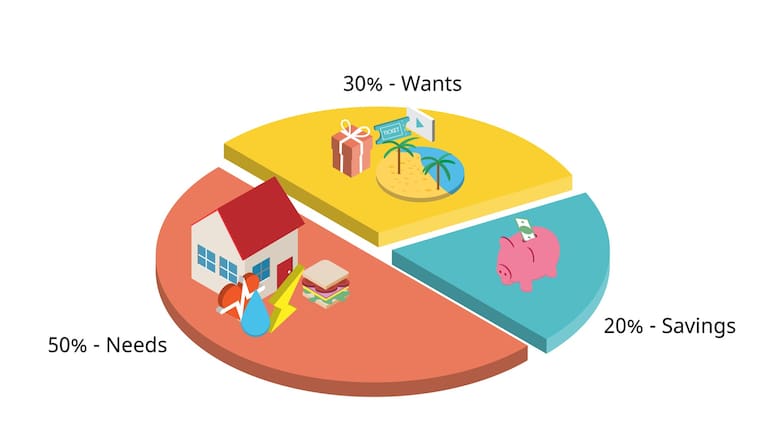A struggling economy doesn’t mean you can’t plan for a better future. Frances Cook has some tips.
It’s the type of economy right now where the advice to “just spend less than you earn” feels about as useful as a chocolate teapot.
We’re already cutting back, questioning every Uber ride, and giving side-eye to the power bill.

But keeping some type of savings going is also incredibly important for our financial health. It will also ensure we stay out of debt-traps if something unexpected happens in life.
So how do we balance it? We look for little wins.
If even one of these works for you, it could be the key to reducing money stress long-term.
1. Pay yourself first (even if it’s $5)
The best time to save is before you see the money sitting in your account. Set up an automatic transfer the day after payday – even if it’s small.
It could be $5, $10 or $20. Doesn’t matter. What matters is the habit, and that you can stick with it.
Automation takes willpower out of the equation, which is great, because willpower is overrated and doesn’t work.
Start small. Raise it later. Just start.
2. Create an “oh sh-t account”
An emergency fund sounds boring, but you know what’s not boring? Avoiding panic when your car battery dies, or your work hours suddenly drop.
Call it a buffer. Call it an “oh sh-t” account, for the moments that make you say exactly that.
Life loves to throw a curveball or two, and those can be exactly the moments that send you into debt, with all of the extra fees and interest it will cost you.

But turning your savings account into something designed to save you from exactly these situations makes it more real. And being able to emotionally connect with what that money is there for, is how you give yourself the motivation to stick with the habit.
This is your financial shock absorber. Even a few hundred bucks can stop a surprise bill from turning into credit card debt. Build it slowly and protect it fiercely.
3. Think in buckets, not budgets
Traditional budgets can feel like punishment – we associate the word with cutting back, being deprived, and missing out on everything good in life.
So, time for a rebrand. Try bucketing instead.
Break your money into three main categories: Needs (rent, food, bills); Future you (savings, debt repayments, KiwiSaver); Fun and flexibility (yes, this matters too, and if you try to skip it, it will be like a money crash diet. You’ll give up in no time at all.)
Give each bucket a percentage of your money. Some people like to do it 50-30-20, but it can also depend on how much you earn, and how expensive housing is where you live. So, I have to leave that one to you.

Still, a percentage is helpful because that way you’re not tracking every single transaction—you’re just checking if you’re keeping the buckets roughly balanced.
It’s easier, and you’re more likely to stick with it.
4. Know your “leak number”
You don’t need to track every dollar forever, but you do need to know where your money’s leaking.
Pick one month. Look through your transactions. Add up the stuff that wasn’t essential: food delivery, subscriptions you forgot about, late fees.
It’s not about guilt. It’s about awareness. Once you see the patterns, you can plug the leaks without cutting joy.
Some things won’t be needed, and don’t bring you any happiness, so they’re easy to cut.
Other things might be needs, or truly bring you joy. But once you’re more aware of them, you can look for smarter ways to control that spending.
5. Build in rewards
Saving money shouldn’t feel like punishment. In fact, if it does, it won’t last. So build in mini rewards.
Transferred $50 into savings this month? Sweet, treat yourself to a Friday night drink.
Crushed your goal of cooking at home all week? Grab coffee and cake on Sunday afternoon.

The trick is to make saving feel like progress, not deprivation. It’s easier to keep going when it feels good.
Even when the economy’s rough, the small wins still matter. The tiny savings still build. The good habits still stack.
At times like this, it’s not about becoming rich overnight, it’s about getting out of survival mode. Creating breathing room.
Start where you are, with what you have.
The information in this article is general in nature and should not be read as personalised financial advice.









